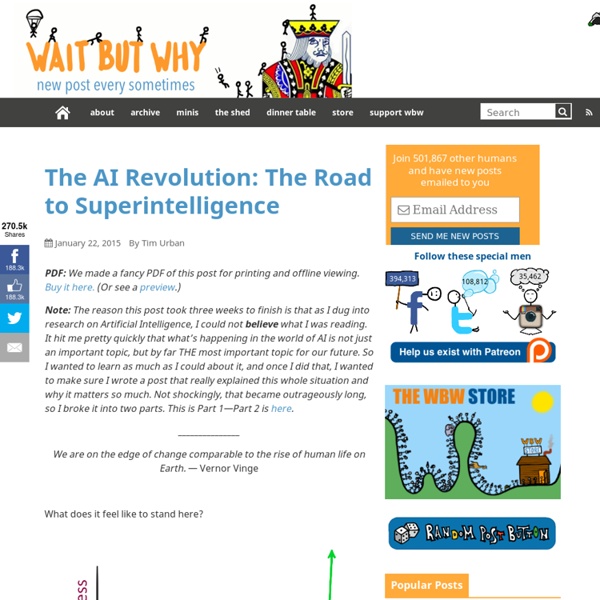Robots will obliterate America's middle class and unleash mass unemployment, social chaos and global populist revolts
(NaturalNews) In the next generation or so, highly capable robots will obliterate America's middle class by displacing tens of millions of workers. We're already seeing it take shape. Check out this robotic crop production facility that uses robots to produce 30,000 heads of fresh lettuce each day. This is precisely the kind of technology that makes humans obsolete. As robotic systems become more capable in the coming years, nearly all low-wage labor jobs will be taken over by affordable, reliable robotics systems.
Superintelligence
A superintelligence, hyperintelligence, or superhuman intelligence is a hypothetical agent that possesses intelligence far surpassing that of the brightest and most gifted human minds. ‘’Superintelligence’’ may also refer to the form or degree of intelligence possessed by such an agent. Technological forecasters and researchers disagree about when human intelligence is likely to be surpassed. Some argue that advances in artificial intelligence (AI) will probably result in general reasoning systems that lack human cognitive limitations. Others believe that humans will evolve or directly modify their biology so as to achieve radically greater intelligence.
Top notch AI system about as smart as a four-year-old, lacks commonsense
Researchers have found that an AI system has an average IQ of a four-year-old child (Image: Shutterstock) Those who saw IBM’s Watson defeat former winners on Jeopardy! in 2011 might be forgiven for thinking that artificially intelligent computer systems are a lot brighter than they are. While Watson was able to cope with the highly stylized questions posed during the quiz, AI systems are still left wanting when it comes to commonsense. This was one of the factors that led researchers to find that one of the best available AI systems has the average IQ of a four-year-old.
The AI Revolution: Our Immortality or Extinction
Note: This is Part 2 of a two-part series on AI. Part 1 is here. PDF: We made a fancy PDF of this post for printing and offline viewing. Buy it here.
27 Science Fictions That Became Science Facts in 2012
We may never have our flying cars, but the future is here. From creating fully functioning artificial leaves to hacking the human brain, science made a lot of breakthroughs in 2012. 1. Quadriplegic Uses Her Mind to Control Her Robotic Arm At the University of Pittsburgh, the neurobiology department worked with 52-year-old Jan Scheuermann over the course of 13 weeks to create a robotic arm controlled only by the power of Scheuermann’s mind. The team implanted her with two 96-channel intracortical microelectrodes.
RoboBrain: Robots Begin to Develop ''Culture'' by Learning From Each Other
By Nicholas West Machine learning continues to advance with new artificial intelligence systems that are beginning to acquire and share knowledge in very human ways. I had written last year about robots that were beginning to learn tasks from YouTube. Researchers from the University of Maryland were using the popular video network as a database of information to enhance artificial intelligence in much the same way that many of us will seek out instruction for attaining new skills. The abstract from their paper entitled: “Robot Learning Manipulation Action Plans by ‘Watching’ Unconstrained Videos from the World Wide Web” states:
What will happen when the internet of things becomes artificially intelligent?
When Stephen Hawking, Bill Gates and Elon Musk all agree on something, it’s worth paying attention. All three have warned of the potential dangers that artificial intelligence or AI can bring. The world’s foremost physicist, Hawking said that the full development of artificial intelligence (AI) could “spell the end of the human race”.
Meet the man who has been at the forefront of AI innovation for three decades
Geoffrey Hinton was in high school when a friend convinced him that the brain worked like a hologram. To create one of those 3D holographic images, you record how countless beams of light bounce off an object and then you store these little bits of information across a vast database. While still in high school, back in 1960s Britain, Hinton was fascinated by the idea that the brain stores memories in much the same way. Rather than keeping them in a single location, it spreads them across its enormous network of neurons. This may seem like a small revelation, but it was a key moment for Hinton -- "I got very excited about that idea," he remembers.



